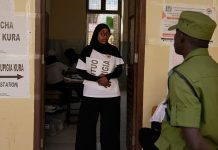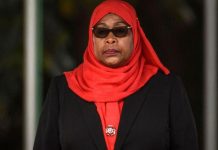Author: ANNE ROBI
AfricaPress-Tanzania: AS part of his Chama Cha Mapinduzu (CCM) party manifesto goals to improve education in the country, the fifth government under President John Magufuli introduced free basic education in 2015, where pupils would attend classes regardless of one’s economic status in the society.
The programme that picks up from pre-primary to secondary school level has seen different education stakeholders contributing in the development of schools and providing education grants to supplement government’s efforts to manage challenges spotted in the sector.
For instance, the World Bank for several years has worked with the government on the implementation of various development policies towards the realisation of the free education by providing grants.
In 2017 the Bank approved education finance of 80 million US dollars to support the government’s efforts to provide quality education to millions of Primary and Secondary School children.
Along that there was an approved financing from the International Development Association (IDA), towards the Education Program-for-Results (EPforR), known as the Big Results Now in Education project, also meant to support the government’s efforts to address challenges in primary and lower secondary schools.
The funds also aimed at safeguarding and improving students’ efforts towards achieving the government’s goals in the first three years of implementation of the program.
In was also meant to finance the EPforR programme and assist the government to maintain surging numbers of pupils enrolling in Primary and Secondary schools, especially girls.
According to Bella Bird, the then World Bank Country Director for Tanzania, Somalia, Malawi and Burundi, the support was to help the State to be able to safeguard the gains that have been made so far in improving the teaching and learning environment in the institutions.
Earlier this year, the World Bank also approved another 500 million US dollars as education loan to support the Secondary Education Quality Improvement Project (SEQUIP).
The money is set to directly benefit about 6.5 million pupils in primary and secondary schools by strengthening government-run schools and establishing stronger educational pathways for students, who leave the formal school system.
In complementing the government’s efforts to improve the quality of education in the country, following the implementation of fee-free education from Primary One to Form Four, there has been increased enrollment of pupils in the institutions from 8.3 million to 10.1 million at the primary level and secondary schools hitting 4.4 million.
The project funded by the WB loan was intended to support students, who would drop out of school to once again have access to recognised, quality Alternative Education and ensure that they are equipped with a minimum package of infrastructure, teachers, textbooks and learning materials as alternative to train in other areas.
It also aimed at ushering in an innovative digital technology that addresses learning crisis in core subjects and prepares students for further education and skills development.
On 15th January, 2020-The Global Partnership for Education (GPE), also approved another grant of 112 million US dollars to build the country’s successful efforts towards enabling more children in schools, especially girls and children from disadvantaged backgrounds have good access to education.
Elaborating, the grant was aimed at improving the quality of education at the pre-primary, primary and non-formal levels of studies, by supporting teachers’ trainings and professional development.
Commenting on the grant, Permanent Secretary in the Ministry of Education, Science and Technology Dr Leonard Akwilapo said they have enhanced the pupils full access and participation in the school systems.
“The Government of the United Republic of Tanzania is committed to providing quality education to all Tanzanians. I wish to acknowledge the important contribution of the GPE in supporting the government’s efforts in implementing the Education Sector Development Program (ESDP),” added Dr Akwilapo.







